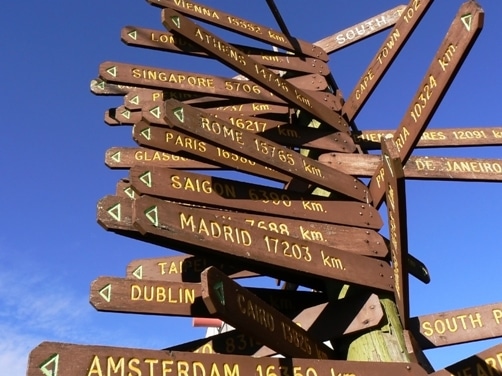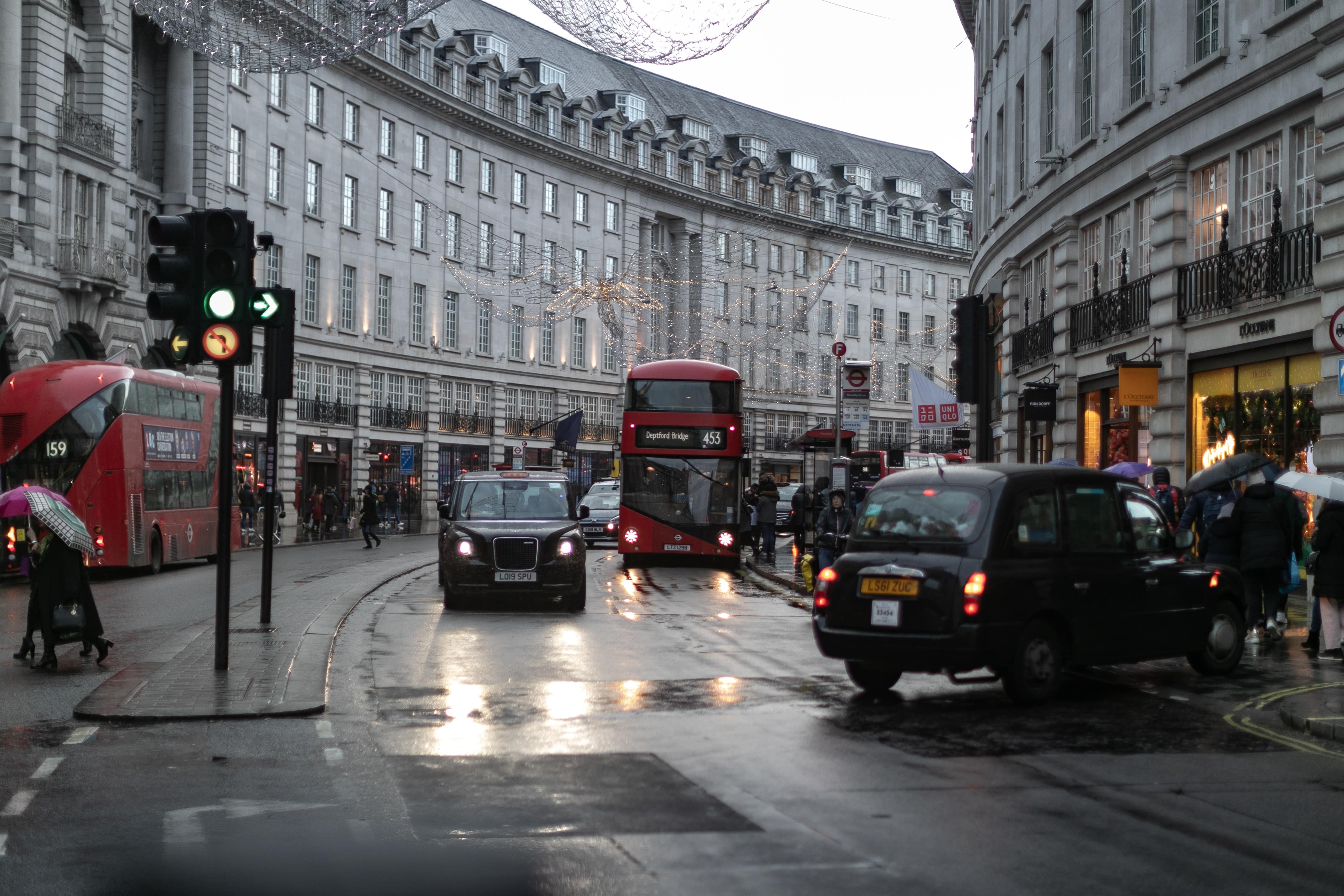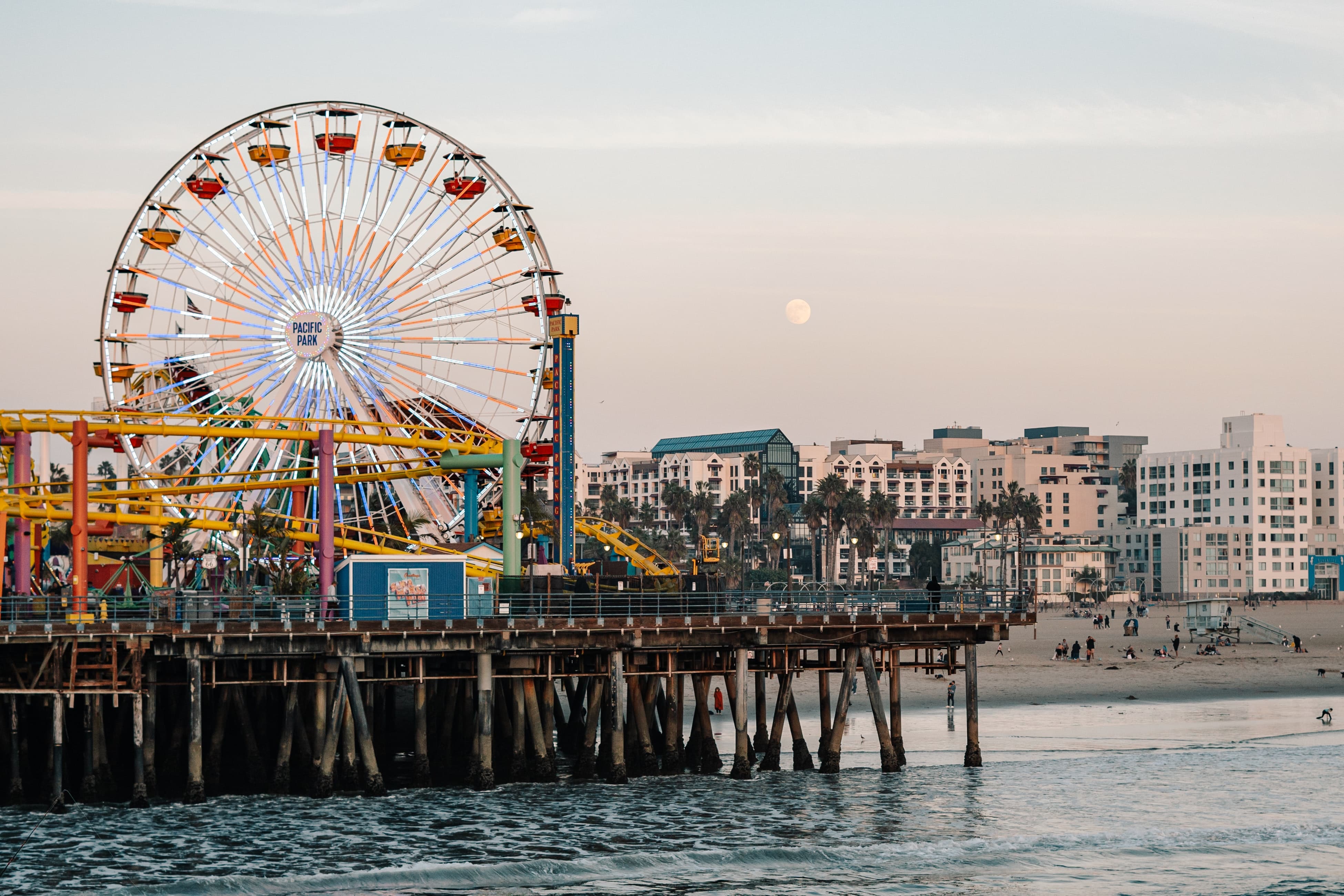
Tourism English: 6 Types of Working Vocabulary
Every year, over 1 billion people visit other countries. These people have a special name: Tourists.
Wherever tourists come from, there is one thing they often have in common: They often speak English.
Knowing tourism English is a skill that can give you an advantage in getting a job or in progressing your career.
Tourism English has a lot of specific vocabulary and repetition. Learning tourism English is a great idea if you plan to work at any job that deals with tourists.
And as you are about to find out, there are lots of different opportunities in the tourism industry!
Contents
- 1. Hotel and Hospitality Tourism English
- 2. Transportation Tourism English
- 3. Medical Tourism English
- 4. Tourist Guide English
- 5. English for Outdoor and Indoor Attractions
- 6. Travel Agency English
- The Benefits of Learning Tourism English
- And One More Thing...
Download: This blog post is available as a convenient and portable PDF that you can take anywhere. Click here to get a copy. (Download)
When you hear the term “tourism English,” you might just think of hotels; however the tourism industry is much bigger than that!
There are many other types of jobs that deal with tourists daily, where a good knowledge of English (and specifically tourism English) would give you an advantage.
Let’s look at what some of them are!
1. Hotel and Hospitality Tourism English
The tourism industry might not be entirely made of hotels, but hotels are definitely a large part of it. Hotel jobs include working as a receptionist (who works at the front desk and makes sure everyone has a room) or concierge (who helps the hotel’s customers find whatever they need to make their stay enjoyable).
You might also get a job as a bellboy (or girl!) and be responsible for helping visitors with their luggage, or a cleaner, who cleans rooms and prepares them for the next guest. Some hotels also employ spa workers, cooks and waiters.
Sample vocabulary:
- Check-in / Check-out : The time when a visitor receives (check-in) or returns (check-out) the keys to their room.
- Room service : A food or other service that is ordered by the visitor and delivered to their room by hotel staff.
- Vacancy : A room that is available to be rented out to a hotel guest.
- Reservation : When a person books a room or service in advance.
How to learn more:
You can find tips and more basic vocabulary for hotel and hospitality English here and here.
The website EnglishForMyJob.com has a nice selection of worksheets and vocabulary lessons for the hotel industry.
Just learning vocabulary is not enough, though. Working on your listening and communication skills is very important for any job in the tourism industry.
2. Transportation Tourism English
When you visit a new place, you need a way to get around. You could use the public transportation system (buses and trains), but there is a good chance you will take a taxi. That is why transportation is another big part of the tourism industry.
Much of the tourism transportation field is made up of private or government-run car services and taxis. However, you can also find a job on a cruise ship or a sightseeing boat, or as a steward or stewardess on an airplane.
Sample vocabulary:
- Destination : The location somebody is trying to get to.
- Single [ticket] / One-Way ticket : A ticket valid for one trip to a destination.
- Round trip ticket : Also known as a return ticket, valid for a trip to a destination and back.
- Fare : The money a passenger has to pay for being transported (taken to a location).
- Flat fee : This is a fixed price passengers pay, instead of paying for time or distance traveled. (Many hotels and some car services have a flat fee for getting to and from airports.)
How to learn more:
The English Club has a page with sample taxi driver phrases and conversations. This website is meant for ESL teachers, but you may find some useful information and exercises to try with a group of friends.
Although most of these are for taxi drivers, they are also good guides for any jobs in transportation!
3. Medical Tourism English
Not all tourists are traveling to enjoy themselves. The field of medical tourism is also growing, and so are the jobs that deal with it. Medical tourism is when people travel to different countries to have certain operations or medical procedures. This happens for many reasons, including price and availability.
If your country is a popular medical tourism destination, English skills will prove extremely useful in finding a job as a nurse—or doctor, if you have the credentials (skills and education)! English can also help you work in any other caregiver role or as a receptionist in a medical setting.
Sample vocabulary:
- Procedure : A procedure is an official way of doing things. A medical procedure is an operation or other kind of medical care given to a patient.
- R & R : A casual term that stands for Rest and Relaxation. A visitor who has just had a medical procedure needs a lot of it!
- Appointment : A meeting between a patient and a doctor or medical professional.
- Medical insurance : Financial cover for medical emergencies or treatment while abroad.
How to learn more:
You can find several articles with vocabulary on Thoughtco. and a large list of worksheets and vocabulary for ESL medical workers on the English Club website.
On the FluentU program, you can also find a variety of medical-related native English clips that you can use to pick up more vocabulary.
FluentU takes authentic videos—like music videos, movie trailers, news and inspiring talks—and turns them into personalized language learning lessons.
You can try FluentU for free for 2 weeks. Check out the website or download the iOS app or Android app.
P.S. Click here to take advantage of our current sale! (Expires at the end of this month.)

4. Tourist Guide English
Tourists often need someone to show them around, or take them on tours. Tours are planned explorations of certain places, and are meant to educate tourists about these locations.
A tour is led by a tour guide. To become a tour guide, you need to learn English—but you also need to know the history of a place, as well as interesting facts about it. You can also get a job at an information desk near certain tourist attractions. These positions require a wider vocabulary, since you often have to answer historical and factual questions.
Sample vocabulary:
- Monument : A public sculpture or display that honors a person or event.
- District : A certain area in a city or a town, often known for something specific. New York’s fashion district, for example, is famous for its beautiful and stylish clothes.
- Scenic : Very beautiful and pleasant to look at. For example, “a scenic view.”
- Meeting point : The place a guide agrees to meet those who are partaking in the tour at a certain time.
How to learn more:
Online course website Alison has a course specifically teaching tourism English, which you can find here. You can also find a large list of useful vocabulary for tour guides on this website.
5. English for Outdoor and Indoor Attractions
There are well-known places in a city or country that are fun for people to visit, and many tourists enjoy seeing these places. These are called attractions, and they can be outdoors or indoors. Not all attractions are meant specifically for tourists, but many deal with tourists on a regular basis.
There are many different types of attractions, which can make it easy to find something you enjoy and care about. Attractions include museums, zoos, aquariums, amusement parks, casinos and many more. There are lots of opportunities here!
Sample vocabulary:
- Recreational : For fun. Swimming in a pool can be recreational. Tourist attractions are recreational.
- Concession stand : A place in or around an attraction where visitors can purchase drinks, snacks or food. Also known as snack bars. In British English, these can be called snack kiosks.
- Ticket office : The place where you buy a ticket.
- Height/Age restrictions : A minimum height/age required for a person to partake in an activity or ride.
6. Travel Agency English
Travel agencies and the travel agents who work there help people plan their trips. They deal with purchasing plane tickets, booking hotels and creating schedules for visiting attractions and going on tours.
As a travel agent, you would work one-on-one with tourists to plan a trip that is perfect for them. This means being on the phone a lot and working with other employees in the tourism industry. The English necessary for being a travel agent is more business-oriented but still polite and friendly.
Sample vocabulary:
- Itinerary : A schedule, or a list of planned routes (ways to get somewhere) or events. A travel agent creates itineraries for his clients.
- Package deal : A special deal that includes more than one purchase, and is usually cheaper than buying them separately. You might get a package deal for a flight and a hotel together, for example.
- Visa : Permission for a person to enter a country. There are many types of visas; however, tourists will usually opt for a “tourist visa” (a visa specifically for tourism purposes). Visa requirements can vary significantly depending on what passport a tourist holds and the country they intend to visit.
- Excursion : A trip to a location. Excursions are often organized.
How to learn more:
You can find several great videos online with sample travel agency conversations. Here is one from Two Minute English:
The Benefits of Learning Tourism English
Tourism is a huge industry. In fact, the number of tourists has been increasing for the past 60 years. A large number of tourists means a large number of jobs for the tourism industry. The tourism industry includes any field that deals in some way with visitors to your country.
One out of every 11 jobs is related in some way to tourism. Lots of jobs means lots of people hired every year, so starting a career in the tourism industry is not as difficult as in some other fields.
That is why knowing tourism English is so important. It can help you better communicate with foreigners, which will make you a better worker, and maybe even help you get a promotion!
The tourism industry is a whole world of opportunities.
Knowing which opportunities you want, and learning English specific to them, is a great way to get ahead in your career!
Download: This blog post is available as a convenient and portable PDF that you can take anywhere. Click here to get a copy. (Download)
And One More Thing...
If you like learning English through movies and online media, you should also check out FluentU. FluentU lets you learn English from popular talk shows, catchy music videos and funny commercials, as you can see here:
The FluentU app and website makes it really easy to watch English videos. There are captions that are interactive. That means you can tap on any word to see an image, definition, and useful examples.
For example, when you tap on the word "searching," you see this:
Learn all the vocabulary in any video with quizzes. Swipe left or right to see more examples for the word you’re learning.

FluentU helps you learn fast with useful questions and multiple examples. Learn more.
The best part? FluentU remembers the vocabulary that you’re learning. It gives you extra practice with difficult words—and reminds you when it’s time to review what you’ve learned. You have a truly personalized experience.
Start using the FluentU website on your computer or tablet or, better yet, download the FluentU app from the iTunes or Google Play store. Click here to take advantage of our current sale! (Expires at the end of this month.)

















